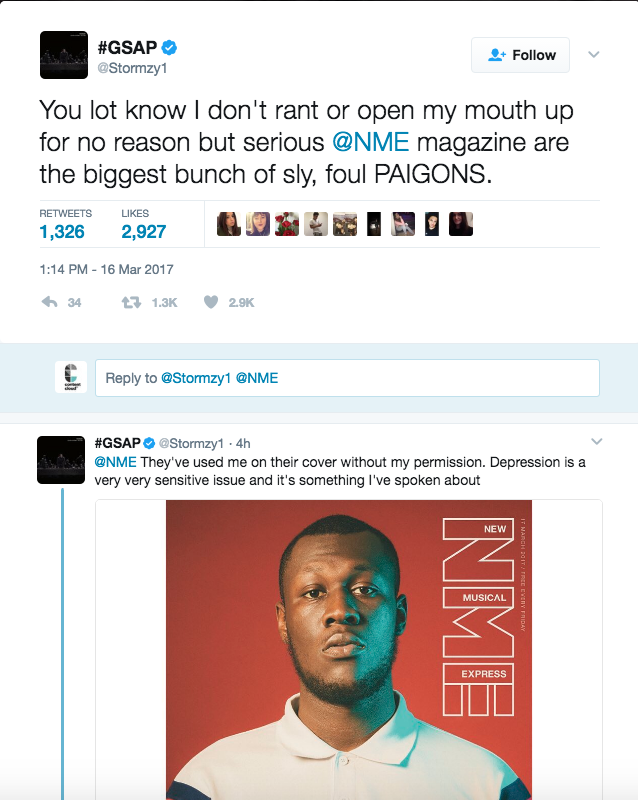The music mag put Stormzy on its cover talking about depression, seemingly without his permission – and so a brave editorial move has blown up in its face
The New Musical Express has been suffering from an identity crisis for some time now. With print sales in decline and its average weekly circulation down to 15,384 in the second quarter of 2014, it made the bold move to ‘go free’.
It seemed to be going reasonably well, with reports of its readership reaching record levels of over 300,000 six months after its relaunch – admittedly with none of those readers paying for it.
And then this happened.
Depression: its time to talk. Wise words in this week's free NME magazine. Find your nearest copy > https://t.co/hjqEMkXCcY pic.twitter.com/28OOZPRt0m
— NME (@NME) March 16, 2017
The striking cover stepped away from music to open up the issue of depression – a worthy and important cause by anyone’s standards. Even better, grime superstar Stormzy was on the cover, ensuring great exposure for the edition and the topic itself.
But the move misfired. Stormzy tweeted that he had not been asked permission to be on the cover. He was furious and a chain of tweets between him and NME editor Mike Williams ensued.
NME replied:
Human error or cynical move?
Twitter, being a merciless sort of place, jumped on the topic with glee. NME’s defence that it was a “free magazine” and “not trying to shift copies” seemed weak – especially with Stormzy’s rebuke that “You’re NOT a non-profit organisation. The more copies you dish out, the more you charge for advertising”.
Whoever decided on the cover, and for whatever reasons, made a serious editorial misjudgement. What should have been an important moment for the magazine – turning its focus on to wider topics and away from music, movies and celebrities – turned into a PR disaster, with readers siding with the musician against the magazine.
Maintain editorial rigor
Content marketers: beware of the rush to publish. The mistake here is bad enough, but the key lesson is to hold up your hands if you get something wrong. Accept the fact that you are a commercial organisation, and however well meaning your content, be careful of hiding behind some form of pseudo-altruism.
It’s also tempting to think that the production process was rushed, with potential problems not being spotted, or being ignored. We’ve looked at the importance of checks and balances very recently.
Free magazines are a tricky medium, (something else we’ve discussed on Content Desk), but in an industry with stiff competition and reduced resources, your editorial focus must remain strong – and your reaction to mistakes must be fast, open and honest.
by James Sullivan. Contact him here.











